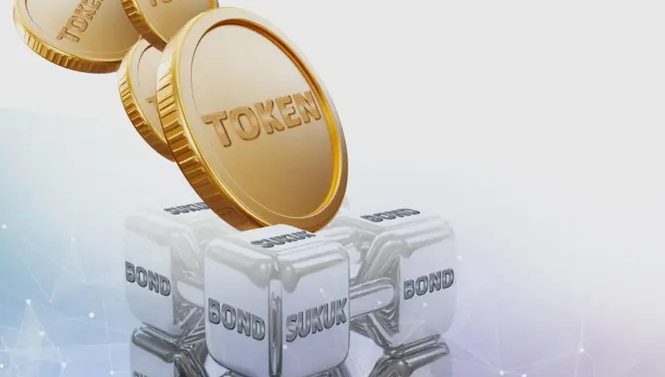
BIX ARTICLE
Luring retail investors to tokenization
Mar 29, 2025
|
5 min read
Featured Posts
Social Bonds Illustrative Use-Of-Proceeds Case Studies Coronavirus
Jul 06, 2020
|
2 min read
Sustainable Banking Network (SBN) Creating Green Bond Markets
Jul 06, 2020
|
2 min read
Why is Inflation Making a Big Comeback After Being Absent for Decades in the U.S.?
Mar 24, 2022
|
7 min read
SC issues Corporate Governance Strategic Priorities 2021-2023
Mar 29, 2022
|
3 min read

s
TOKENISATION, a method of representing assets as digital tokens on a distributed ledger technology such as blockchain, may be one way to increase retail participation in the bond/sukuk market.
This is because investors may then be able to buy fractional amounts of financial assets or securities at a lower cost, in order to achieve the higher participation rates sought by the Securities Commission (SC). Perhaps the SC can take a closer look at some basic issues before we get to tokenisation.
Since 2018, retail investors have been able to invest in corporate bonds and sukuks through bond funds. Since there is only one distributor, the fee structure for such investments is questionable, despite the fact that it is possible to invest as little as RM1,000.
As there are no other distributors, it is a monopoly by default. Additionally, there are distribution and management costs, which may explain why there is only one distributor. It is also reasonable to assume that retail investors are not interested with only one distributor.
If information and education can spark the interest of the average retail investor, more effort should be expended to guide them to this information. It is actually abundant on the internet and available on the sites of the Bond+Sukuk Information Exchange (BIX) and AsianBondsOnline, a platform operated by the Asian Development Bank.
Links to related and trusted websites are also provided by BIX. RAM Holdings Bhd and Malaysian Rating Corp Bhd also provide information.
The low interest in exchange-traded bonds and sukuk (ETBS) on Bursa Malaysia’s Main Market, available to retail investors since 2013 with a minimum investment of RM1,000, shows the challenges faced by the SC.
Most retail investors prefer equities, especially with online trading platforms making stock trading easy. It does not help that there are only two ETBS issuers, both government-related, listed on the Main Market.
Coming back to cost, fees and profitability, banks earn good profit from selling bonds/sukuk in large tranches to institutional investors and high-net-worth individuals. They take on most of these issuances, leaving very little for retail investors.
Banks are reluctant to distribute to retail investors due to the cost and upfront investment needed for infrastructure, which impacts their profitability.
It may be why Bank Negara is involved with tokenisation of bonds/sukuk, which is under the SC’s mandate. Bank Negara governor Datuk Seri Abdul Rasheed Ghaffour says the central bank’s role is to ensure accessibility and protect retail investors.
It’s unusual for Bank Negara to work on areas that are part of the SC’s mandate unless it involves banks’ participation in retail distribution or setting up infrastructure for this.
If the central bank is worried about cybersecurity or technology risks, these concerns were addressed in the SC’s updated technology risk management guidelines issued last August. The guidelines were initially released in August 2023 to help capital market entities improve their operational resilience.
The central bank’s 2024 annual report highlights its focus on responsible innovation and the use of new technologies like artificial intelligence and asset tokenisation, while also keeping an eye on emerging technologies like quantum computing and their associated risks.
There has been confusion about who is leading the country’s tokenisation efforts. The SC announced at the SCxSC Fintech Summit 2024 that it, along with Khazanah Nasional Bhd, is working on issuing tokenised bonds using blockchain technology, to be launched later this year. However, Bank Negara was the original regulator, having issued new regulations for digital currency exchanges in December 2017.
In December 2018, Bank Negara and the SC issued a joint statement, with the SC taking on the role of regulating digital asset issuances and trading on Malaysian digital exchanges. Both regulators agreed to coordinate to ensure compliance with laws and regulations. The SC released guidelines for digital exchanges in February 2019.
Democratising the bond/sukuk market by involving more retail investors is beneficial. It offers asset diversification and a less volatile, less risky investment option, aiding better retirement planning. However, the SC needs to generate interest in bonds/sukuk among retail investors and, if demand increases, persuade banks to allocate more issuances to these investors.
Article By FINTAN NG
Source: Luring retail investors to tokenization (2025, 29 March). Retrieved from https://www.thestar.com.my/business/insight/2025/03/29/luring-retail-investors-to-tokenisation
Disclaimer
YOU MAY ALSO LIKE
ARTICLE
Feb 16, 2026
|
5 min read
ARTICLE
Feb 12, 2026
|
4 min read
ARTICLE
Feb 06, 2026
|
5 min read
ARTICLE
Feb 06, 2026
|
3 min read


